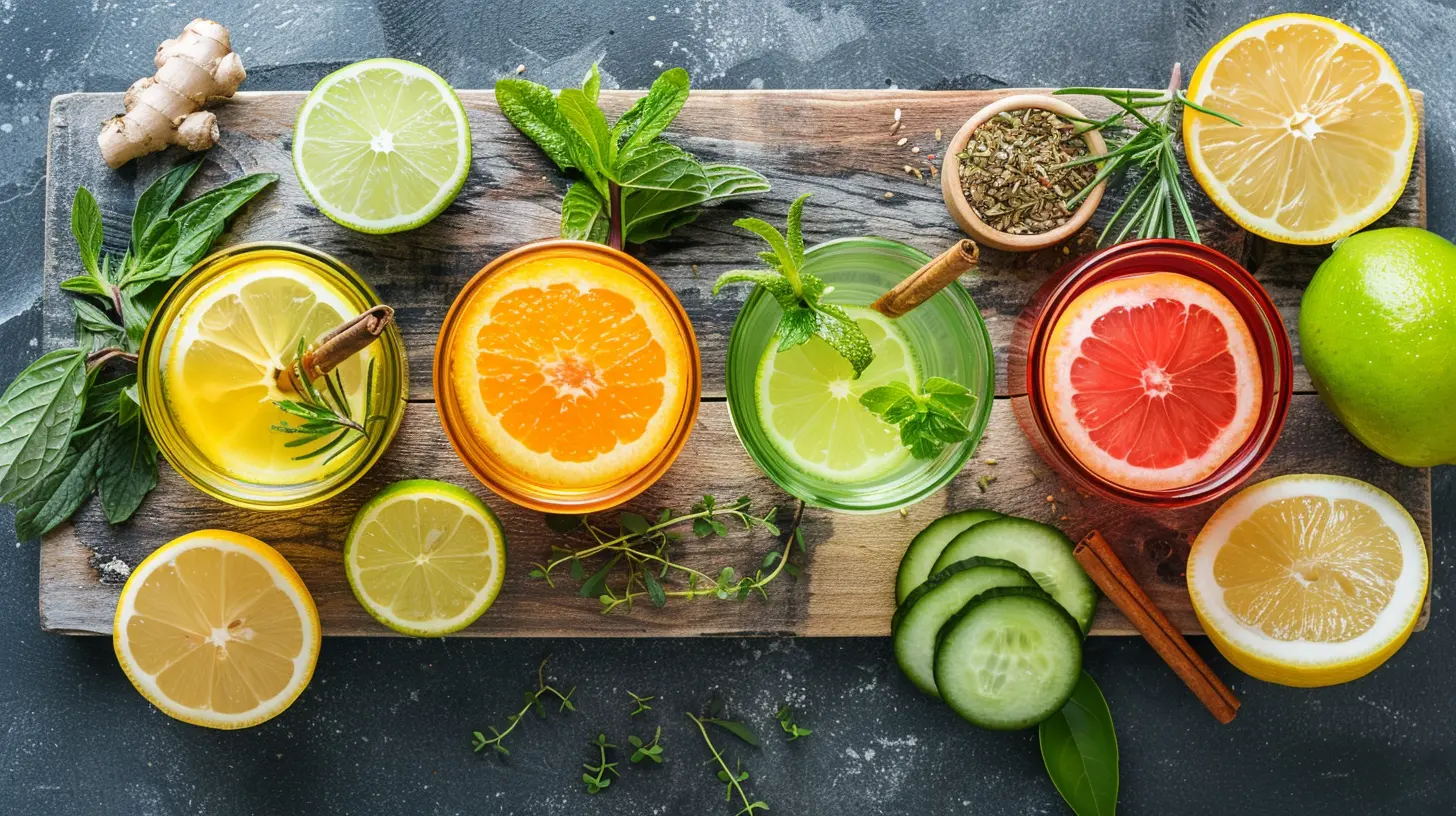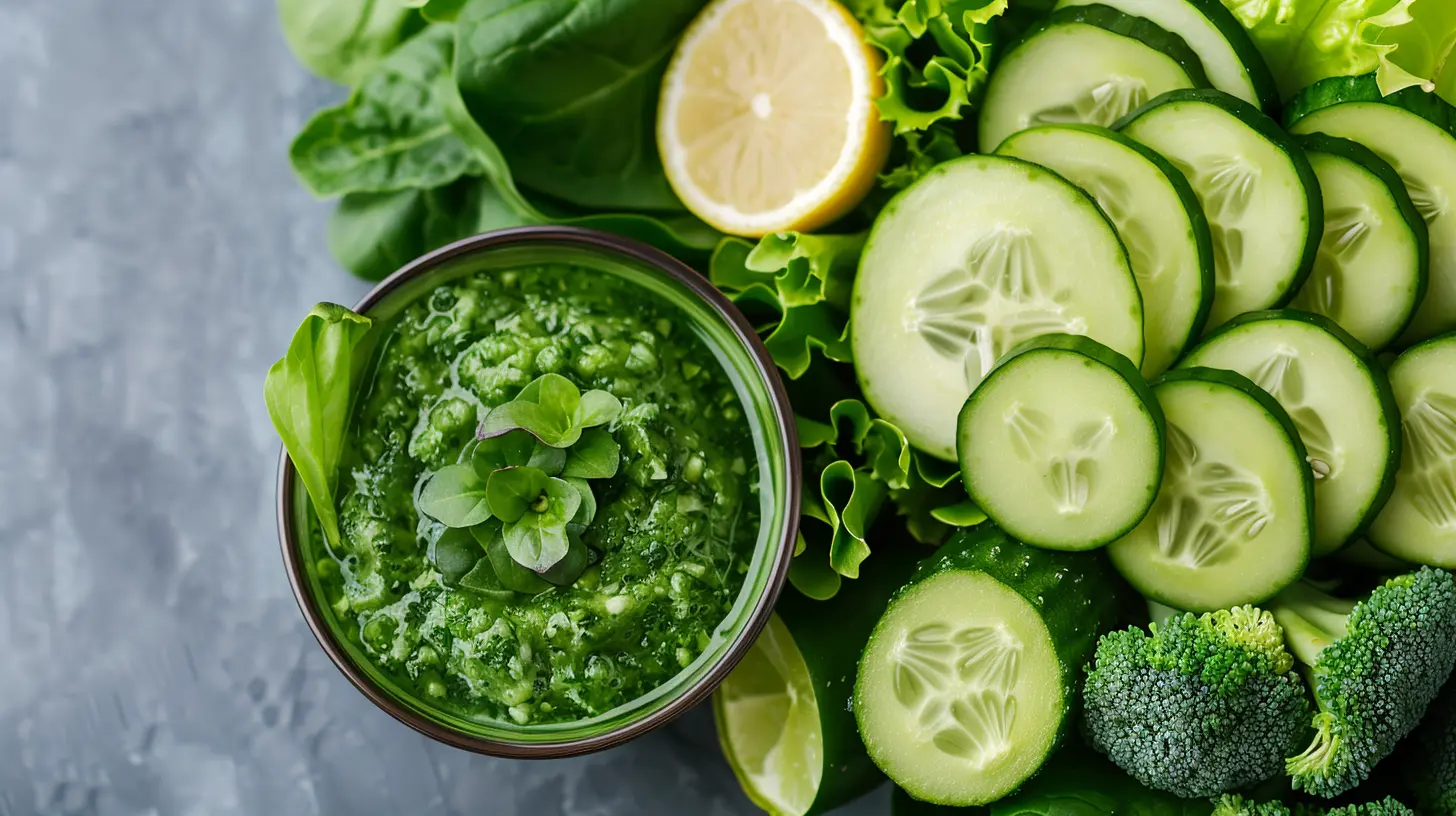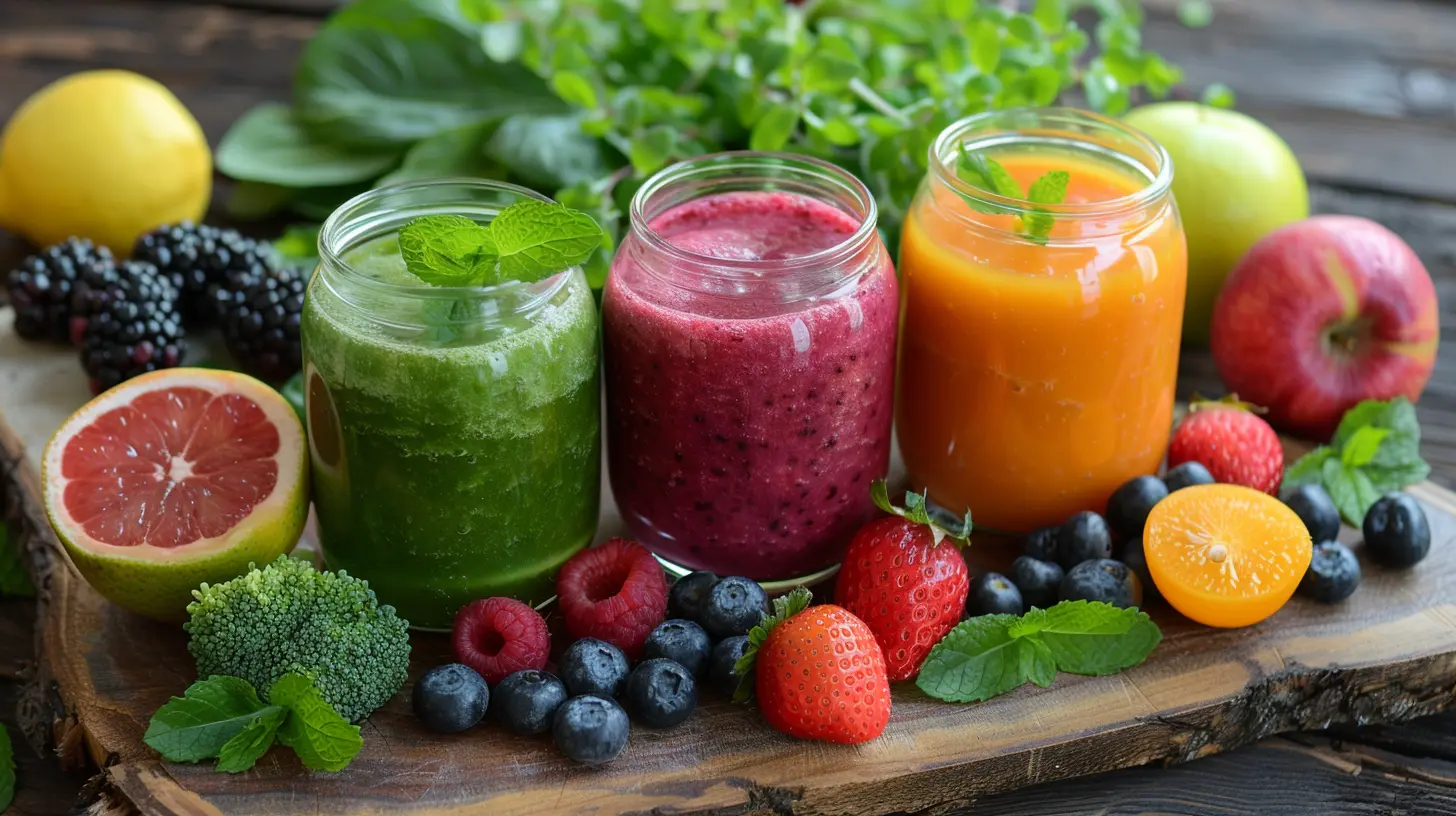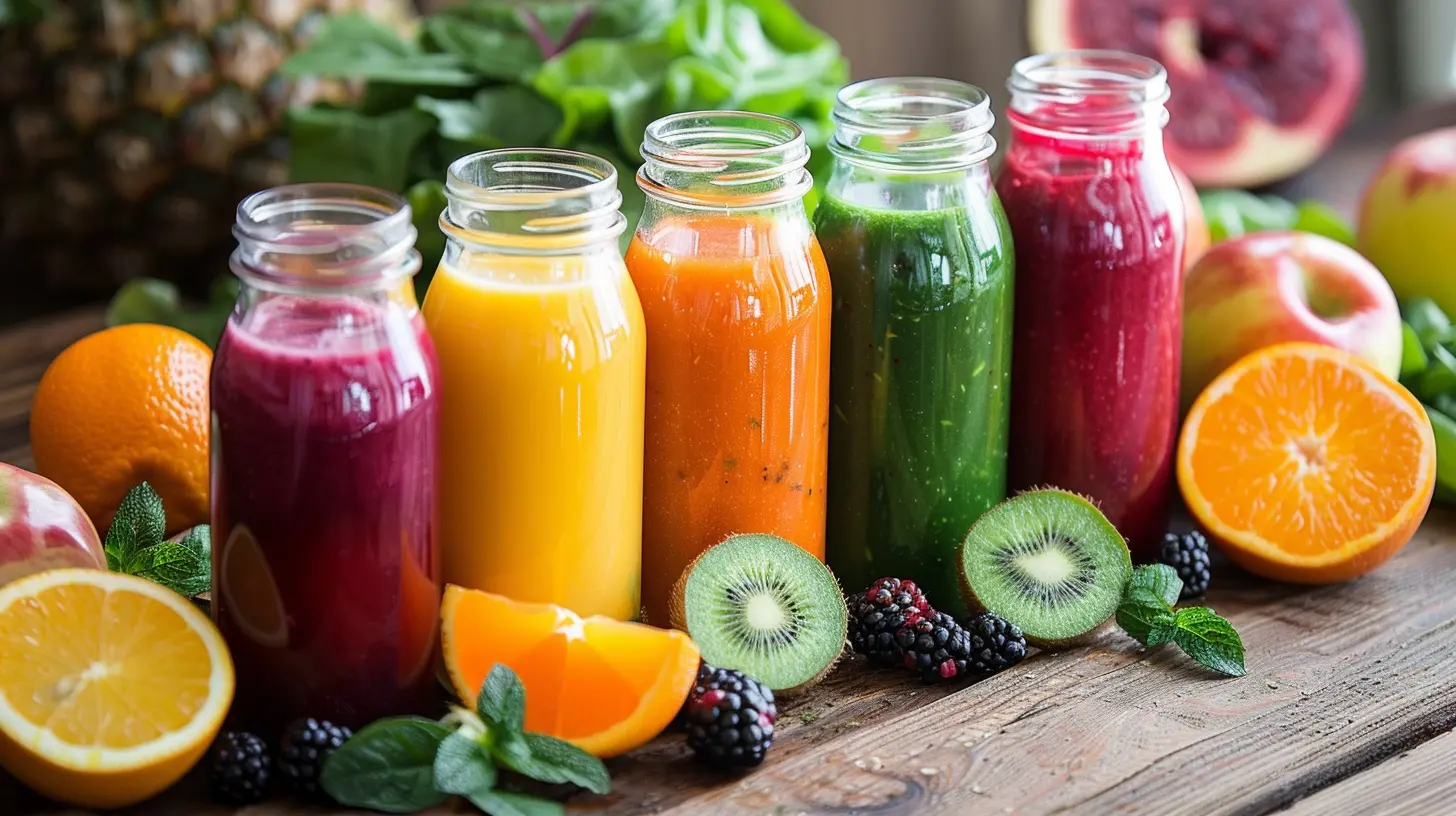Understanding the Role of Detox in Weight Loss
23 July 2025
Ever heard the phrase "detox your body and shed those extra pounds"? It's everywhere—from juice cleanses to detox teas, promising to flush out toxins and boost weight loss. But does detoxing really help you lose weight, or is it just another health trend? Let's break it down and separate fact from fiction.

What Exactly is a Detox?
A detox is often marketed as a way to get rid of toxins in your body. The idea is that our bodies accumulate harmful substances from processed foods, pollution, and even stress. Detoxes claim to "cleanse" your system, helping your body function better and, in many cases, aiding weight loss.But here's the reality: Your body is already a detox machine! Your liver, kidneys, lungs, and even your skin work 24/7 to remove waste and filter out harmful substances. So, do you really need a special detox plan to do the job? Let’s dive deeper.

The Link Between Detox and Weight Loss
So how does detoxing relate to weight loss? Well, it's not magic. The weight loss that comes from detoxing is often linked to temporary changes rather than long-term fat loss.1. Water Weight Loss
Many detox diets—especially those involving juice cleanses or fasting—cause a rapid drop in weight. But most of this is water weight, not fat. That’s because when you cut carbs and reduce salt intake, your body sheds excess water. While the scale may show a lower number, it doesn't mean you've lost actual fat.2. Calorie Restriction
Detoxes often involve consuming fewer calories, whether through liquid diets or clean eating. Naturally, eating fewer calories leads to weight loss. However, extreme detox diets can slow down your metabolism, making long-term weight loss harder.3. Improved Digestion
Some detox methods encourage eating more fiber-rich foods like fruits and veggies, which can aid digestion. Better digestion helps reduce bloating and improve gut health, which may make you feel lighter and more energetic.4. Reduced Processed Foods and Sugar Intake
A detox usually eliminates processed foods, sugary drinks, and alcohol—all of which contribute to weight gain. Cutting these out can help create healthier eating habits that lead to sustainable weight loss.
Common Types of Detox Methods
Not all detoxes are created equal. Let’s take a look at some popular types and whether they actually help with weight loss.1. Juice Cleanses
Juice detoxes involve drinking only fruit and vegetable juices for a set period, usually a few days to a week. While they provide vitamins and minerals, they lack protein and healthy fats, which are essential for a balanced diet. Weight loss from juice cleanses is mostly water weight, and once you resume normal eating, the pounds may come right back.2. Tea Detoxes (Teatoxes)
Detox teas contain herbs like dandelion, ginger, and green tea that claim to cleanse your body. Some even contain laxatives, which make you lose water weight quickly but don’t help with real fat loss. Overusing these teas can lead to dehydration and nutrient deficiencies.3. Intermittent Fasting
Some people consider intermittent fasting (IF) a form of detox because it gives your digestive system a break. IF can help with weight loss by promoting fat burning and reducing calorie intake. Unlike other detoxes, IF is sustainable and backed by science.4. Whole Food Detox
A whole food detox focuses on eating only natural, unprocessed foods while avoiding sugar, refined carbs, and artificial additives. Instead of extreme restrictions, this method prioritizes nutrient-dense meals, making it a more sustainable option for long-term weight loss.
The Pros and Cons of Detoxing for Weight Loss
Before you jump on the detox bandwagon, it’s important to weigh the benefits and potential risks.Pros:
✅ Encourages healthier eating habits – Cutting out junk food and focusing on whole foods can improve overall health.✅ Reduces bloating and improves digestion – A detox with fiber-rich foods can help with gut health.
✅ Increases hydration – Many detox plans emphasize drinking lots of fluids, which is great for your body.
✅ Short-term weight loss – A detox can lead to quick weight loss, but it’s mostly temporary.
Cons:
❌ Loss of muscle and metabolism slowdown – Extreme detoxes lack protein and essential nutrients, which can break down muscle and slow your metabolism.❌ Not sustainable – Many detoxes are difficult to maintain, leading to yo-yo dieting.
❌ Possible nutrient deficiencies – Cutting out whole food groups can deprive your body of essential vitamins and minerals.
❌ Digestive issues – Detox teas and cleanses may cause diarrhea and dehydration.
How to Detox the Right Way for Healthy Weight Loss
If you want to "detox" without extreme diets or harmful restrictions, here are some safe and effective ways to support your body’s natural cleansing process while promoting weight loss.1. Eat Real, Whole Foods
Ditch ultra-processed foods and focus on whole foods like fruits, vegetables, lean proteins, and healthy fats. Your body will naturally detox when you fuel it with the right nutrients.2. Stay Hydrated
Water is the ultimate detoxifier. Drinking enough water helps flush out toxins and keeps your metabolism running smoothly.3. Support Your Gut Health
Your gut plays a huge role in detoxification. Eating probiotic-rich foods like yogurt, kimchi, and sauerkraut can promote a healthy digestive system.4. Get Enough Sleep
Your body repairs and detoxifies itself while you sleep. Aim for 7-9 hours of quality sleep to keep your detox systems working efficiently.5. Exercise Regularly
Sweating helps remove toxins through your skin, and regular exercise supports weight loss by boosting metabolism and burning fat.6. Reduce Sugar and Alcohol Intake
Excess sugar and alcohol put stress on your liver, making it harder for your body to detox naturally. Cutting back on these can make a huge difference in both weight loss and overall health.
Final Thoughts
Detoxing can be a great way to reset your eating habits and feel lighter, but it’s not a magic solution for weight loss. While certain detox methods may help you drop a few pounds quickly, sustainable weight loss comes from a balanced diet, regular exercise, and healthy lifestyle choices.Instead of falling for extreme detox trends, focus on nourishing your body with real food, staying active, and practicing healthy habits that last. Your body is already an expert at detoxing—just give it the right tools to do its job effectively!
all images in this post were generated using AI tools
Category:
DetoxAuthor:

Holly Ellison
Discussion
rate this article
1 comments
Xavi Hill
Great insights! Detox can be a helpful part of a balanced weight loss plan.
August 8, 2025 at 4:36 PM

Holly Ellison
Thank you! I'm glad you found the insights helpful. Detox can indeed support a balanced approach to weight loss.


